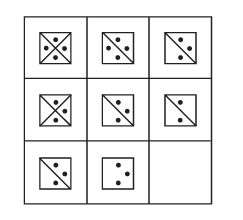On understanding.
The key ingredient to learning, and intelligence.
Learning comes really easy to me. I find it easy to just immerse myself in something I have no prior experience with, get at ease with the complexity of it all and just make my way through steady bouts of unknowing and knowing to arrive at an objective. It isn’t to say that it’s hassle-free but that I find myself at home with complexity and making sense thereof.
I know that to truly learn a concept I must have understood said concept. And yet the concept of “understanding” itself is something I’ve never really understood. I know what it feels like to understand a concept intuitively but I don’t quite feel like I can define it in a way that doesn’t involve testing for it.
What exactly does it mean to “understand” something?
Feynman chalked it up to being able to explain or reproduce knowledge in a manner that is accessible. But this feels far more like a test of understanding than understanding itself. Perhaps, this highlights something crucial to figuring out what understanding is.
There seems to be some deeper level abstraction regarding the concept that I believe hasn’t quite been elucidated, one at the heart of AI research today.
For a brief minute, I would even believe intelligence didn’t take understanding (obviously wrong) trying to clarify the point that one could make use of a tool despite not understanding how the tool was built, or what its manufacturers intended it to be used for. That one simply needed an objective. But it immediately became apparent to me that tool use does take understanding. An agent needs to understand how a characteristic of a tool relates to a context such that it can solve a problem with a given tool. Some may say this makes understanding analogous to interpretation in context, but then how does one know they have an appropriate interpretation of a given scenario?
In an attempt to understand “understanding” let’s look at instances of its use in “intelligence”. Intelligence is defined as the ability to solve problems. I find this definition unsatisfactory because as much as we are able to quantify it to some extent we aren’t able to reproduce/model/simulate it and that shows a very limited understanding of what it really constitutes. A concrete identification of what this “ability” is, is still elusive. But we do know it requires “understanding”.
In trying to understand… “understanding” I consistently collide with the concept of validation. Validation/testing at this point I believe, is inseparable from understanding. Probably why it’s the best method we know of for learning anything.
Playing with some tests of visuospatial reasoning, one quickly realizes that they first have to identify some pattern (some probabilistic mechanism for generating relationships) and then consequently validate whether that rule holds across a few samples (in their minds) before they confirm whether that pattern exists. In learning, we actively acquire knowledge and validate whether this knowledge is consistent with reality.
A key component of problem-solving and thereby intelligence is the ability of an agent to self-validate. That is to say, how well can an agent verify that their line of thinking about some context is not wrong? How can they generate information about a context, or perhaps, make use of prior knowledge to solve a problem(Fluid and Crystalized Intelligence)?
In the tool use case above, my mistake was thinking that understanding had far more to do with knowledge of the tool. I was thinking far less so about whether the agent could ascertain that a tool would achieve a measurable objective which requires specificity of understanding. And how does an agent truly know that a tool may achieve a measurable objective? It finds a way to validate its beliefs.
Memorization, trial-and-error, etc. All of these are techniques with which an agent gains an understanding of some component of the world.
Arriving at this conclusion I think I’m willing to substitute my definition of “understanding” from “correct interpretation in context” which feels vague to “validated belief” which I feel clarifies the core of what understanding is.




